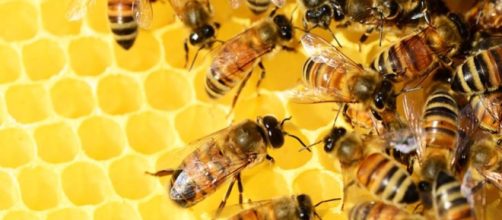Whether one likes it or not, insects are an integral part of the environment but they are dying because of pesticides and the diminishing green cover. Scientists believe the loss of insects will lead to an ecological imbalance and precipitate a dangerous situation with global implications. A recent study reveals that large numbers of species could become extinct in the next few decades and the world should realize the seriousness and take measures to reverse the trend.
CNN reports a couple of reasons for the loss of insects. One is from dying out and another is because some of them belong to endangered species.
The net result could translate into a “collapse of the planet's ecosystems with a devastating impact on life on Earth.” This is the summary of the recently released report of scientists based on numerous studies on the subject undertaken by others over the past three decades.
Insects could be wiped out 'within a century' as scientists warn they are dying out eight times faster than mammals https://t.co/n8qbBiJJJ1
— Daily Mail Online (@MailOnline) February 11, 2019
Insects are vital for sustaining life
The lead author of the study is Francisco Sanchez-Bayo who is associated with the University of Sydney. He says this is “the first truly global examination of the issue.” Insects are necessary to maintain the balance of ecosystems that have direct links to the food chain.
Hence, they are vital for survival. Some factors responsible for this are the adverse effects of pesticides, fertilizers, urbanization and the corresponding loss of greenery due to climatic disorders.
Insects are dying off at a scary rate, putting humanity at risk https://t.co/Tv0xaCnkjv
— FORTUNE (@FortuneMagazine) February 11, 2019
The loss of insects will have a cascading effect. CNN says insects not only pollinate plants but also are food for the birds. Once they disappear from the scene, larger birds might prey on the smaller ones. Obviously, there is a need to overhaul agricultural methods and focus on alternatives to chemical pesticides and fertilizers. It is equally important to restore the green cover so that insects can flourish and ensure that the ecological balance is not disturbed.
Rates of decline are significant
Daily Mail UK, quoting a recent report, predicts a frightening scenario in which insects could become extinct within a century if their rate of decline continues. This rate is nearly 41percent and in the opinion of researchers, there must be a concerted effort at all levels to raise awareness about the crisis. The study highlights the fact that insects are dying out at a faster rate compared to that of mammals, birds and reptiles. The rates of decline for species of butterfly and bees is significant with 53 percent and 46 percent respectively. West Coast monarch butterflies also face extinction.
“[One entomologist] describes a flowerless world with silent forests, a world of dung and old leaves and rotting carcasses accumulating in cities and roadsides, a world of ‘collapse or decay and erosion and loss that would spread through ecosystems.’” https://t.co/rj6Mi4dgkd
— Linus67 (@OldLinus67) February 11, 2019
The root of the problem lies in agriculture methods apart from other issues like Climate change, deforestation to accommodate urbanization, loss of habitat, disease and the introduction of invasive species.


